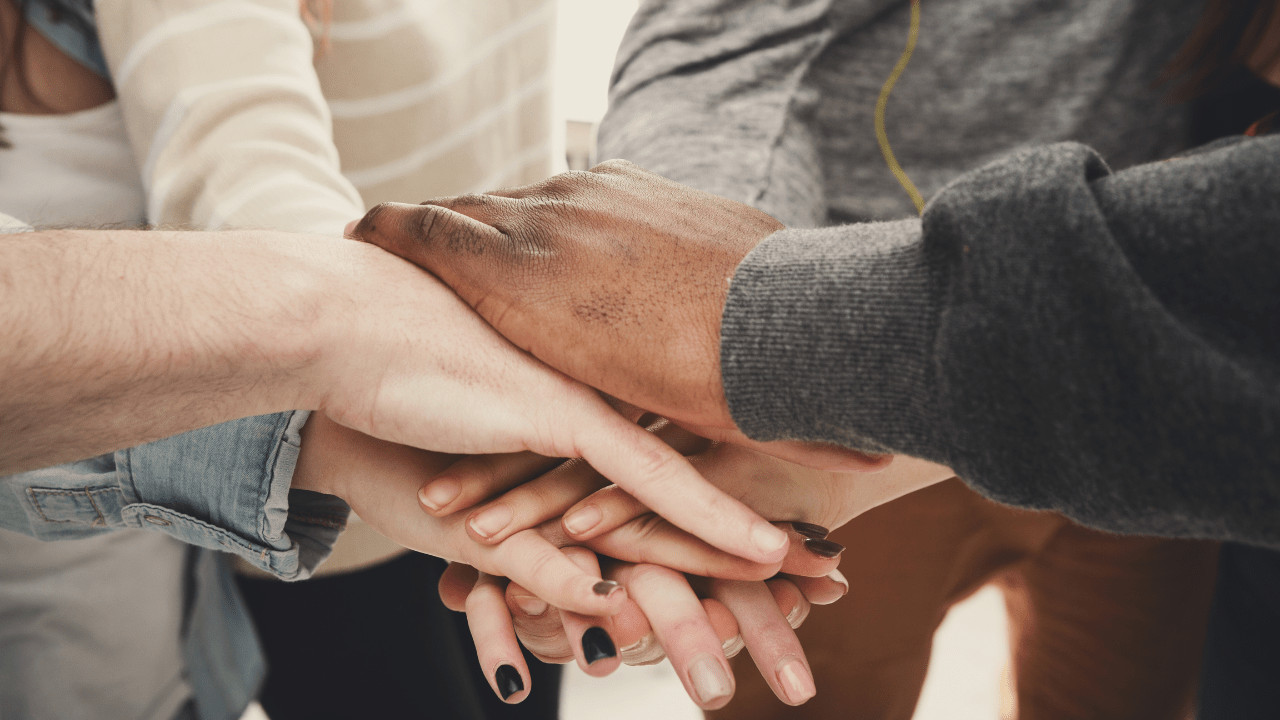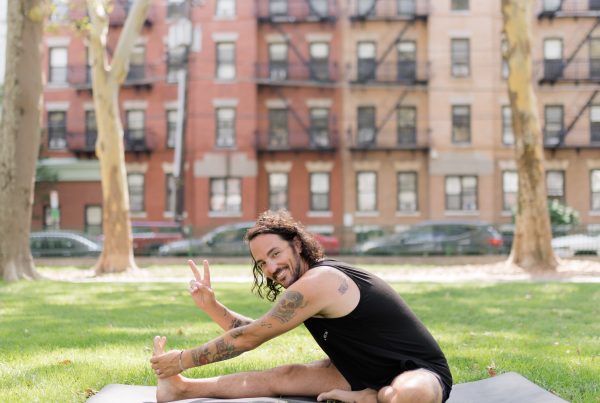
Yesterday I had the absolute pleasure of seeing my dear friend, Allison Gilbert, speak on a subject that’s been on my mind a lot lately. Her presentation was advocating for social wellness – the often forgotten third pillar of health. Physical and mental health steal a lot of the spotlight with discussions on mind/body often neglecting social wellness altogether. It deserves better attention.
In 2023, U.S. Surgeon General Dr. Vivek Murthy declared loneliness an epidemic. In fact, his ‘parting prescription for America’ wasn’t focused on gun violence, obesity, or the opioid crisis – it was centered on loneliness and the impact of community. An extensive 2019 survey found nearly half of Americans feeling loneliness, and the data post-COVID appears even worse. In short, this is a prevalent but largely ignored issue.
For a long time there was a stigma surrounding mental health. I think back to the TV show ‘Sopranos’ and how the main character, Tony Soprano, had to hide his therapy sessions. It hasn’t been that long since the Sopranos went off the air and yet that seems like an alien concept today. Mental health has entered the mainstream alongside physical health, but social health remains largely outside the realm of discussion in wellness circles.
This is spite of the fact that there has been a wealth of studies on the impact social wellness has on mortality. Studies suggest loneliness and the lack of social connection increase the risk of premature death to the level of smoking 15 cigarettes a day – greater than the risk of obesity or physical inactivity! Other studies show that a lack of social connection can carry increased risk of heart disease, stroke, dementia, anxiety and depression. Social wellness isn’t just about making friends or building relationships – it has a direct impact on our longevity.
There’s a lot of factors at play that have influenced our sense of community and loneliness. I don’t intend on getting into them much here. I’m more concerned about what we can do about it. How can we get back out there and expand our relationships beyond what Gilbert calls ‘junk friends?’ (Just like junk food, junk friends are relationships that aren’t particularly meaningful. Friendships with empty calories.)
A Blueprint for Social Wellness
A few months ago I asked Gilbert if she wanted to develop a course for the YogaRenew app that outlines how to navigate this issue. She is an Emmy-award winning journalist, and coauthor of the best-selling book ‘The Joy of Connections’ with Dr. Ruth that delves into this very topic.
The course, “How to Build Meaningful Connections,” is available now on the app and its free for anybody with a subscription. It explores how to build the type of connections that help you feel seen, heard and valued. It’s a blueprint for anybody seeking closer friendships, longer-lasting romantic partnerships, stronger family ties, or a more satisfying sense of community. It lays out a personalized antidote to the loneliness epidemic.
Let’s take a look at some of my favorite revelations from that course to get a sense of how to navigate loneliness and prioritize social health.
Connection Begins Within
To really build meaningful connections, it’s important that you have a good sense of your interests and what you want out of relationships. Gilbert likens this to configuring a ‘connections compass.’
Defining your interests, goals and expectations is the first step because it gives you direction. Without this internal work, you’re wandering aimlessly and raising the potential for toxic or shallow relationships.
Within the Yoga Sutra’s Yamas, we encounter principles like non-violence (ahimsa), truthfulness (satya), non-stealing (asteya) or non-possessiveness (aparigraha). Ethical guidelines like these can help us fine tune that connections compass and enable more successful relationships.
You can’t pour from an empty cup. In order to build really deep and meaningful connections you need to start within.
Change Your Setting
There’s a ton of talk about ‘third spaces’ these days, especially when it comes to making friends or building relationships. For sure, you can meet some great people in third spaces like your local yoga studio or book club, but in order to really develop that connection you need to move the relationship outside of that setting.
Inviting somebody to a casual lunch, or to see a movie is a display of interest. It’s a signal that you see someone as more than an acquaintance you occasionally bump into. It doesn’t have to be an intimate invitation, anything casual outside of where you typically see them will do.
You’ll have trouble developing a deep, meaningful connection if your only interaction is within a transactional environment. If you’re looking to deepen the relationship, you need to change your setting.
Practice Small Gestures
Big gestures get all the attention, but the strongest relationships are built on a foundation of tiny moments. You shouldn’t need to fly somebody first class to Italy to win them over. A consistent series of small gestures will go further in building meaningful connections and they’re more sustainable than big gestures.
Maybe you send someone a thoughtful note or offer them to carpool if you’re headed in the same direction. Tiny efforts add up over time and can be done with greater frequency than big gestures.
Be Real
If you’re unable to be honest about your struggles, share concerns, or show vulnerability, you’re not leaving much space for somebody else to do the same. This isn’t about saddling somebody with every ounce of difficulty you encounter. It’s about developing a relationship of authenticity. Life is imperfect, and the way we present ourselves should align with that truth.
Use Technology
Technology is widely regarded as one of the problems driving the loneliness epidemic, but it can also be a tool that we use to combat it. It could be something as simple as setting a calendar reminder to remember someone’s birthday or other special date. A little ‘happy birthday’ can go a long way.
Voice memos can make interactions over text feel a bit more human – there’s a lot that gets lost in text, and a lot that gets communicated in the tone or pace of your voice. It’s a simple shift that can transform your engagement.
Online communities can be a valuable place to discover relationships. They enable people to connect across shared interests on a much wider scale than in-person events can. Especially in suburban or rural areas with limited options.
Online connections can be a great starting point to discover meaningful, in-person relationships. Just remember that in order to really develop a relationship, you’ll need to eventually move it outside (change your setting).
Social Health is Imperative
As time marches on, I find myself becoming more of a homebody than I was in my younger years. Getting out to social events sometimes feels like a chore, but one that I know needs to be done. For a long time, socializing felt unproductive – like I was averting more meaningful activities. There’s so much pride in Western culture attached to self-sufficiency and independence. It seems like we’ve lost sight of how important community and connection really are.
Social wellness needs to be included more regularly as a third pillar of health alongside mind and body. We need to engage with our neighbors, embrace our communities, and participate in society. We need social safety nets, support, and guidance.
Meaningful connections foster compassion and empathy. They provide partnerships to navigate challenges and celebrate triumphs. They’re avenues for practicing generosity and humility. Our relationships and community don’t just impact our satisfaction; they impact our life expectancy. They’re not a luxury, they’re an imperative.
If any of this resonates with you, I’d like to invite you to explore Allison Gilbert’s course on How to Build Meaningful Connections. It’s an insightful blueprint on how to navigate friends, lovers, and family. Writing from a country that’s become increasingly divisive, it’s exactly what we need – an antidote to the loneliness epidemic.







